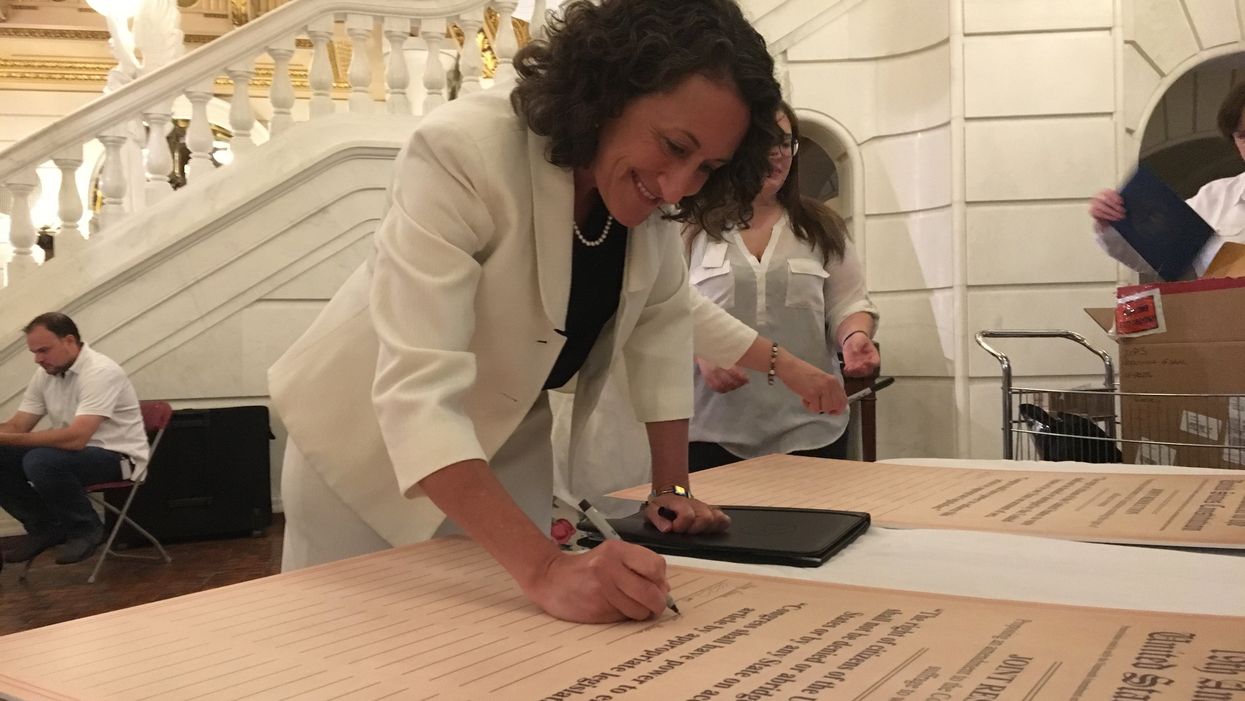Democrats continued their aggressive legal strategy to make voting easier on Wednesday, filing lawsuits seeking to expand mail-in balloting this year in both reliably red South Carolina and premier battleground Pennsylvania.
The suits are the latest in the party's multimillion-dollar campaign against a wide range of laws and regulations it alleges are illegally and unconstitutionally suppressing the vote, particularly in poorer and minority areas.
Republicans are vowing to spend as aggressively defending the provisions under challenge. But the effort has already brought victories for Democrats — on issues ranging from party order on ballots to signature verifications — in six states.
Both new suits challenge laws that for now will steer the vast majority of voters toward polling stations this fall, even if the coronavirus pandemic has not subsided.
One asks a state judge to declare that South Carolinians may vote absentee for the rest of the year because of the public health crisis. The state is among the 16 that require voters to cite a reason, or excuse, to obtain a mail-in absentee ballot, and several of them have already eased or suspended that requirement at least for the primaries.
One of the acceptable reasons for voting at home under South Carolina law is a physical disability. The suit argues that the pandemic fits under this definition, something the Republican-run government in Columbia has rejected.
"Left unchanged, the state's election law would require most South Carolina voters to choose to either safeguard their health and the health of their communities or exercise their constitutional right to vote," said Marc Elias, the attorney at the helm of the Democratic litigation wave.
His other fresh suit, filed on behalf of the Pennsylvania Alliance for Retired Americans, challenges four provisions of state law that limit voting by mail. It asks a state judge to make Democratic Secretary of State Kathy Boockvar provide a postage-paid envelope along with every absentee ballot, guarantee that ballots delayed in the mail until after the polls close Election Day get counted anyway, permit voters to have help in delivering their absentee ballots, and train election officials on how to compare the signatures on those ballots with those on file.
If ballots are rejected based on the signatures not matching, the suit asks that voters receive "reasonable notice" so they can remedy the problem.
Elias vowed these will not be the final suits brought before the election. "The hard work of fighting voter suppression in 2020 is not done. Indeed, in many ways, the fight has just begun," Elias said.
The other states where his cause has won so far, either through settlements or court orders, are Florida, Iowa, New Hampshire, Michigan, South Carolina and Wisconsin. The cases are generally brought in the name of the Democratic National Committee, the state party and the party's House and Senate campaign committees.




















Trump & Hegseth gave Mark Kelly a huge 2028 gift